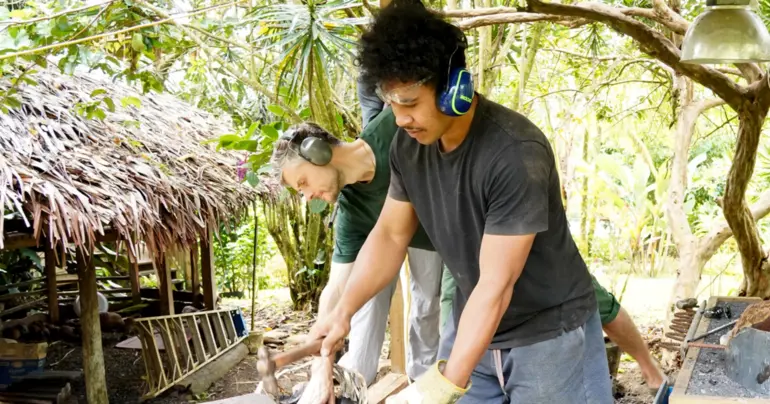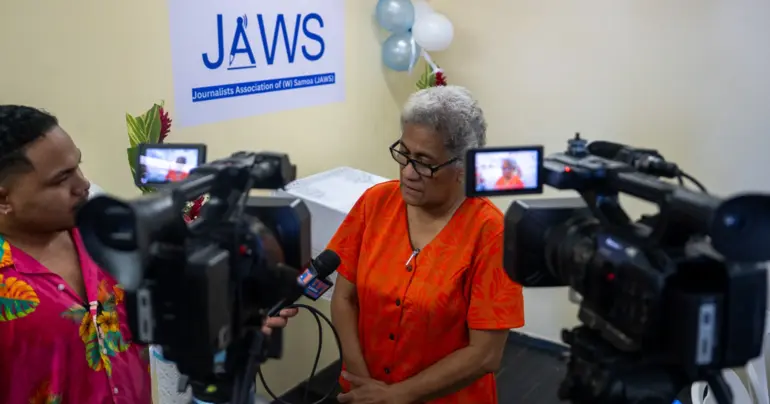Independence celebration 2025
Imagine what it was like on January 1st, 1962, when our country became an independent sovereign nation. Imagine how our people felt when our leaders, leaders of this tiny dot in the Pacific Ocean, lowered the New Zealand flag and hoisted our own at a time when countries that are 200-300 times bigger than ours, such as Kenya, Uganda, Tanzania, and Algeria, as well as those in the Caribbean Sea, like Jamaica, and Trinidad and Tobago, were still fighting for theirs. The feeling amongst our people then must have been one of absolute euphoria, of pride as they watched our flag flutter in the wind as though it was waving out to them: “Take our country and turn it into a great democratic nation!”
Independence Day is always a time we look forward to. It is when we parade with pride at Mulinu’u to hear how far we have come since the United Nations’ trusteeship days, when we were under New Zealand’s rule. This year, the celebration was a huge disappointment. While many schoolchildren and members of various organisations marched to show their patriotism, the disunity among our political leaders and the disinterest of many members of parliament were conspicuous by their absence. Especially those from the political party that was part of Prime Minister Fiamē Naomi’s government earlier in the year until they got ousted. Many voters will not forget that come August 29th.
With Parliament now dissolved, political parties are out on the hustings. Some will promise voters the sky. Candidates themselves, especially those who feel they have a slim chance of being re-elected, will find it difficult to refrain from slipping a $50 or $100 bill into voters’ pockets, despite the law deeming such acts illegal. It is not just the candidates. Some voters during election campaign time have a habit of extorting money from candidates by promising to vote for them if they are given a certain sum or other financial favours. (It’s a common misconception among them that if they can con someone out of money, they are considered smart.)
At the combined Independence Church Service last Sunday at the Catholic church at Mulivai, the Reverend who led the service called for unity and harmony and told politicians that they lacked humility; as parliamentarians, they did things selfishly, meaning what they did was not for the general good of the country but for their own benefit. (That would not have gone down well with the leader and members of the political party that was last in government.)
The outcome of the pending August elections is going to be interesting. In the past, voting was more tribal in the sense that voters’ allegiance was not to political parties but to candidates, especially if they were from their village or family, or he/she held an important matai title. Today, voters are increasingly identifying with and supporting the political party that they believe will alleviate them from economic hardship while also governing the country wisely and being led by a leader with a strong moral compass.
Prime Minister Fiamē Naomi’s new party will cause problems for the Fa’atuatua i le Atua Samoa ua Tasi (FAST). She has already split their supporters. Those with empathy for her will shift their allegiance and support her candidates. Reverends of a particular denomination who vocally supported FAST in the last elections are being very quiet, suggesting that they regret their move and are unhappy with the lack of civility shown by some of their members of parliament, as well as with how their congregants are now worse off than they were under the previous government.
Asking some people I’ve never met before about how things were brought out some interesting responses, like our hospital needs maintenance as well as improvement to its service to the public, I’m not happy with what the Samoa National Provident Fund is doing to our contributions, I'm angry that the employer that my friends and I worked for in Australia under the RSE scheme had asked us to come back but the government had blocked it. These people are not going to vote for FAST.
The Human Rights Protection Party, in case they think they will stroll back into power due to the chaotic situation our country is in, needs to think twice. Half of our population (49.7%) is female. They are starting to realise that they do have the power to change the government. Continuing to have a male-dominated political party, with very few females selected as candidates, may force some females to consider shifting allegiance and voting for Fiamē's newly formed party or other parties with more female candidates.











